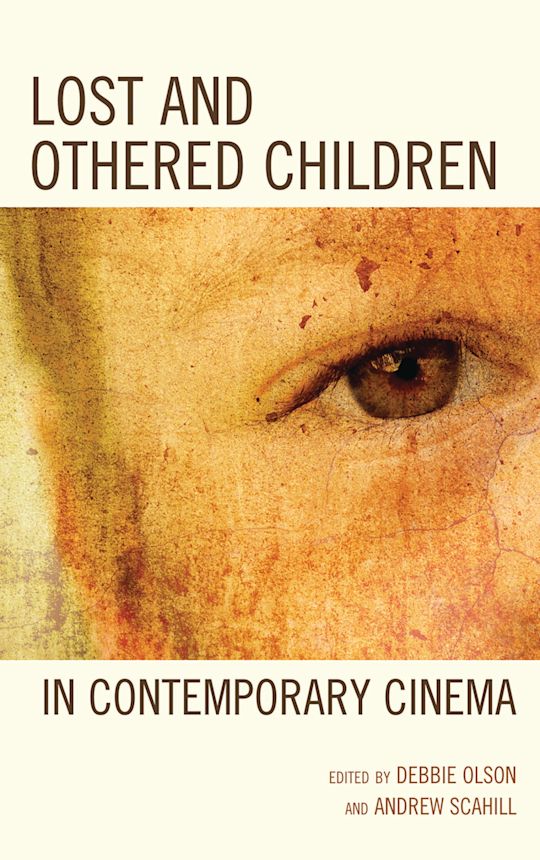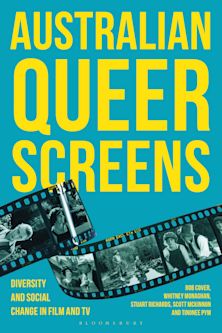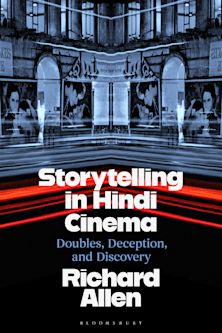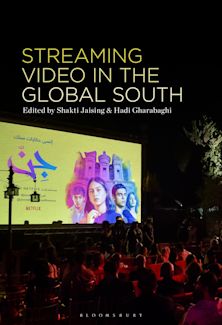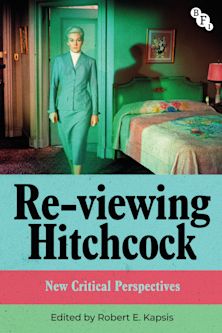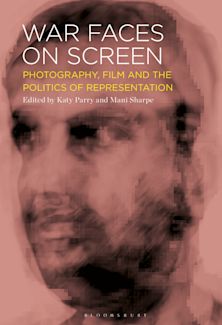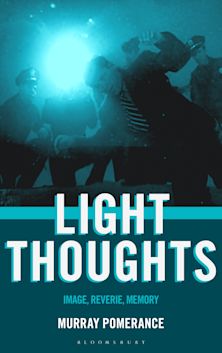- Home
- ACADEMIC
- Film & Media
- Film History
- Lost and Othered Children in Contemporary Cinema
Lost and Othered Children in Contemporary Cinema
Debbie C. Olson (Anthology Editor) , Andrew Scahill (Anthology Editor) , Sage Leslie-McCarthy (Contributor) , Jayne Steel (Contributor) , Stella M. Hockenhull (Contributor) , Adrian Schober (Contributor) , Sarah E. S. Sinwell (Contributor) , Nicole Beth Wallenbrock (Contributor) , Christine Singer (Contributor) , Lindiwe Dovey (Contributor) , Kiu-wai Chu (Contributor) , Gilles Chamerois (Contributor) , Carolyn Salvi (Contributor) , Christian Stewen (Contributor) , Fran Hassencahl (Contributor)
Lost and Othered Children in Contemporary Cinema
Debbie C. Olson (Anthology Editor) , Andrew Scahill (Anthology Editor) , Sage Leslie-McCarthy (Contributor) , Jayne Steel (Contributor) , Stella M. Hockenhull (Contributor) , Adrian Schober (Contributor) , Sarah E. S. Sinwell (Contributor) , Nicole Beth Wallenbrock (Contributor) , Christine Singer (Contributor) , Lindiwe Dovey (Contributor) , Kiu-wai Chu (Contributor) , Gilles Chamerois (Contributor) , Carolyn Salvi (Contributor) , Christian Stewen (Contributor) , Fran Hassencahl (Contributor)
You must sign in to add this item to your wishlist. Please sign in or create an account
Description
Children have been a part of the cinematic landscape since the silent film era, yet children are rarely a part of the theoretical landscape of film analysis. Lost and Othered Children in Contemporary Cinema, edited by Debbie C. Olson and Andrew Scahill, seeks to remedy that oversight. Throughout the over one-hundred year history of cinema, the image of the child has been inextricably bound to filmic storytelling and has been equally bound to notions of romantic innocence and purity. This collection reveals, however, that there is a body of work that provides a counter note of darkness to the traditional portraits of sweetness and light. Particularly since the mid-twentieth century, there are a growing number of cinematic works that depict childhood has as a site of knowingness, despair, sexuality, death, and madness. Lost and Othered Children in Contemporary Cinema challenges notions of the innocent child through an exploration of the dark side of childhood in contemporary cinema. The contributors to this multidisciplinary study offer a global perspective that explores the multiple conditions of marginalized childhood as cinematically imagined within political, geographical, sociological, and cultural contexts.
Table of Contents
by Debbie Olson & Andrew Scahill
Chapter 1. "I See Dead People": Ghost-Seeing Children as Mediums and Mediators of Communication in Contemporary Horror Cinema.
by Sage Leslie-McCarthy
Chapter 2. "I Can't Go On, I Must Go On": How Jeliza Rose Meets Alice and the Dark Side of Childhood in Terry Gilliam's Tideland
by Jayne Steel
Chapter 3. Wednesday's Child: Adolescent Outsiders in Contemporary British Cinema
by Stella M. Hockenhull
Chapter 4. Wonka, Freud, and the Child Within: (Re)constructing lost childhood in Tim Burton's Charlie and the Chocolate Factory
by Adrian Schober
Chapter 5. Representations of Childhood and Conflict in African Fiction Film
by Christine Singer & Lindiwe Dovey
Chapter 6. Pity the Child: Exploring Race, Class, Gender, and Sexuality in Gummo (1997)
by Sarah E. S. Sinwell
Chapter 7. The Ideal Immigrant is a Child: Michou d'Auber and the Politics of Immigration in France
by Nicole Beth Wallenbrock
Chapter 8. "It's All For You, Damien!": Oedipal Horror and Racial Privilege in The Omen Series
by Andrew Scahill
Chapter 9. Little Rebels in Mao's Era: Representing Children of the Past in Zhang Yuan's Little Red Flowers (Yuan Zhang, 2006)
by Kiu-wai Chu
Chapter 10. "Batteries Have Run Out": Ken Loach's Sweet Sixteen
by Gilles Chamerois
Chapter 11. A Krank's Dream: Conflicts Between Form and Narrative in City of Lost Children
by Carolyn Salvi
Chapter 12. Childhood, Ghost Images, and the Heterotopian Spaces of Cinema: The Child as Medium in The Others
by Christian Stewen
Chapter 13. The Hitchcock Imp: Children and the Hyperreal in Alfred Hitchcock's The Birds (1963)
by Debbie Olson
Chapter 14. Experiencing Hüzün Through the Loss of Life, Limbs, and Love in Turtles Can Fly
by Fran Hassencahl
Product details
| Published | 18 May 2012 |
|---|---|
| Format | Ebook (Epub & Mobi) |
| Edition | 1st |
| Extent | 330 |
| ISBN | 9780739170267 |
| Imprint | Lexington Books |
| Publisher | Bloomsbury Publishing |
About the contributors
Reviews
-
This new volume offers insightful analyses of troubled and troubling children in the movies. Olson and Scahill have collected an impressive array of scholarship, focusing not just on how the child is figured in Western horror and fantasy traditions, but also within African, Asian, and Middle Eastern contexts. This volume will be of interest to anyone studying film genre, the sociocultural constructions of childhood, and the vagaries of globalization.
Harry Benshoff, University of North Texas
-
The explosion of childhood studies benefits all of us, directing us to see familiar texts in new ways. Why does the figure of the lost or different child affect us? Ambiguous, threatening, pitiful, too familiar...these children wander through our films out of and into our imaginations. Lost and Othered Children in Contemporary Cinema is an excellent and provocative collection that will stimulate further insights, and hopefully more research, into the use and abuse of the figure of the child.
Janet Staiger, University of Texas at Austin
-
Here is an excellent, invigorating collection dealing with children in the cinema, specifically, children who do not seem to fit into the normal family scenario. Olson (Univ. of Texas, Arlington) and Scahill (George Mason Univ.) have collected a wide variety of essays that deal with, among other things, children in horror films; "adolescent outsiders" in modern British cinema; Tim Burton's Charlie and the Chocolate Factory; the Omen series of horror films; the controversial Harmony Korine film Gummo; and Ken Loach's film Sweet Sixteen. Also discussed are The Birds, City of Lost Children, and other key films that offer fragmented, disturbing visions of childhood in the cinema. The lack of stills is a drawback, but the essays are clear, well written, and absolutely knowledgeable (vis-à-vis the various films, filmmakers, and thematic obsessions they pursue). The book as a whole offers the reader a comprehensive overview of the children who really "don't belong" anywhere, often through no fault of their own. This is meticulously detailed scholarship covering a wide range of topics. A valuable resource for those interested in this aspect of film aesthetics and history. Summing Up: Highly recommended.
Choice Reviews









